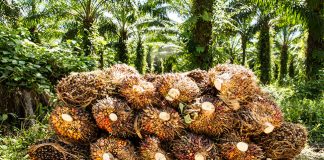The LBIC identified brokers from the Financial Services Board database, who were then invited to apply. The three-month programme skilled brokers in crop insurance, commercial agricultural short-term insurance as well as farming basics.
The division identified a need in the market for black crop insurance brokers to help small-scale and emerging farmers access formal insurance products.
According to Dini Nondumo, executive manager: sales and distribution at the LBIC, many small-scale farmers do not have access to, or knowledge of, risk management products to carry them through natural disasters.
Nondumo said these brokers could work with small-scale farmers where established brokers might see no market. Statistics provided by the Land Bank indicated that South Africa had more than 450 000 emerging and small-scale farmers.
Adverse weather conditions were the primary driver of losses in smaller farming enterprises. “While commercial farmers also bear the brunt, they are more resilient. A smaller, uninsured black farmer is left with no choice but to approach the banks for further credit,” he said.
Schalk Schultz, manager of business development: crops at Santam Agriculture, said this development could be “very positive” for the industry. However, to reach such farmers brokers had to be based in rural areas not covered by traditional brokers.
“I believe our main objective as insurers should be to develop as many skilled brokers as possible, especially in areas where farming takes place so that all farmers can have access to skilled brokers,” he said.
Small-scale farmers have an important role in poverty reduction and food security. However, due to the lack of agricultural insurance in this sector, these farmers were more vulnerable to weather disasters.
According to the International Fund for Agricultural Development, smallholders managed more than 80% of the world’s estimated 500 million small farms. They also provided more than 80% of the food consumed in much of the developing world.











